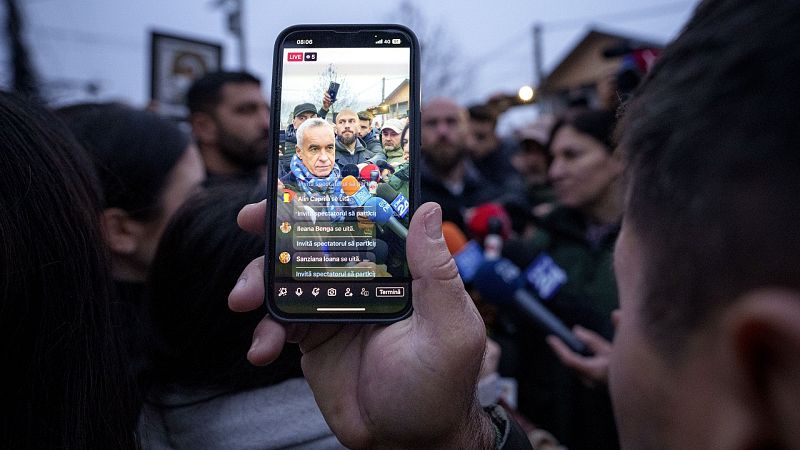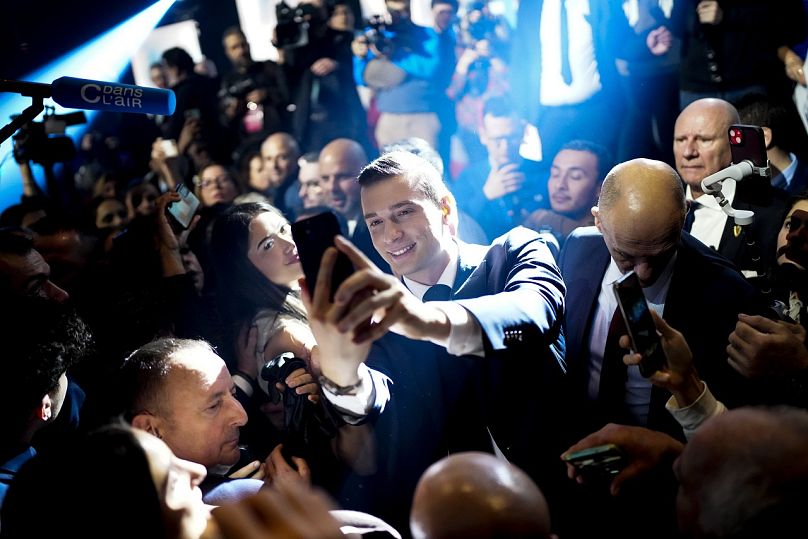Rise of political influencers sparks questions about ad regulation, study shows

The rise of political influencers — content creators on social media who sway public opinion by endorsing political causes or candidates — has raised questions about how best to regulate them, a German media regulator said in a study published Monday.
EU rules for political advertising, aimed at countering information manipulation and foreign interference in elections, and at increasing transparency about sponsors, but political influencers fall outside that scope, have entered into force this month.
The content that this type of influencers create — a mix of opinion and information — is not considered journalism either, the study by the Media Authority of North Rhine-Westphalia (Landesanstalt für Medien NRW or LfM) said, and that is where, according to them, the problem lies: how can we be sure some are not manipulating their followers?
Meanwhile, their popularity keeps growing. The European Commission's 2025 social media study shows that one-third of respondents (37%) say they follow influencers or content creators on social media channels. Among 15- to 24-year-olds, this figure rises to 74%.
"As reach increases, so does the responsibility. Anyone who emotionalises, polarises or distorts political content not only manipulates debates, but also weakens trust in democracy,” LfM Director Dr Tobias Schmid said.
The study shows how political communication works on TikTok and Instagram and how it influences people’s thinking. In 59% of the contributions checked in the report, opinion and information cannot be clearly distinguished.
“In order to counter these challenges, we want people to be able to distinguish between facts and fake information, and opinion, recognizing anti-democratic intentions and, in extreme cases, also reporting violations of the law," Dr Schmid said, adding that to counter the phenomenon, “new regulatory approaches” are needed.
Is Digital Fairness Act a good solution?
The Commission is set to announce a Digital Fairness Act (DFA) late next year: rules to protect consumers from misleading influencer marketing, as well as harmful online practices such as addictive features and subscription traps.
It remains unclear, however, whether political influencers will be covered by the regulation — which has a strong focus on protecting minors — too. A public consultation to gather industry and citizens’ feedback will close on Friday.
Steven Berger, senior legal officer at EU consumer group BEUC, told Euronews that it is hard to quantify how much popularity influencers have gained, but added that Europe “needs to address influencer-related issues.”
“The DFA can be one tool. This means defining what influencer marketing is, making all actors in the influencer marketing ecosystem liable and ban influencer promotion of dangerous or unhealthy products,” Berger said.
Europe has seen an increase in the use of influencers by political parties.
In the Romanian presidential election last year, influencers were said to have been paid by Russia to run a campaign on the video-sharing platform TikTok, which ultimately led to the win of ultranationalist and then relatively unknown candidate Calin Georgescu, an investigation by the country's prosecutor's office found.
Romania's Constitutional Court ultimately annulled the first round of the election after allegations of Russian interference emerged. Georgescu has denied any wrongdoing.
TikTok said in a statement at the time that it “does not accept paid political advertisements,” and “proactively removes content for violating our policies on misinformation, harassment and hate speech.”
Hungary’s ruling party, Fidesz increased its use of hardline rhetoric during the 2024 European Parliament elections through a pro-government political influencer network known as the Megafon Centre, Hungarian researchers said in a paper this year.
In France, far-right content is widely available on mainstream platforms like TikTok and Instagram, helping facilitate the far-right's rise in popularity in the 2024 European elections, a paper published in September 2024 by the London School of Economics said.
"Although the largest share of the youth vote (41%) went to the left, 28% of French voters under the age of 35 backed the far-right National Rally," the report said.
"This support owed much to Jordan Bardella ... dubbed 'TikTok king', with over 2 million followers on TikTok and more than 830,000 on Instagram."
The Commission launched an investigation under the Digital Services Act — rules to combat illegal content and products online — into TikTok after the election to determine whether the company did enough to mitigate systemic risks to election integrity, but the probe has not yet been wrapped up.
Today


